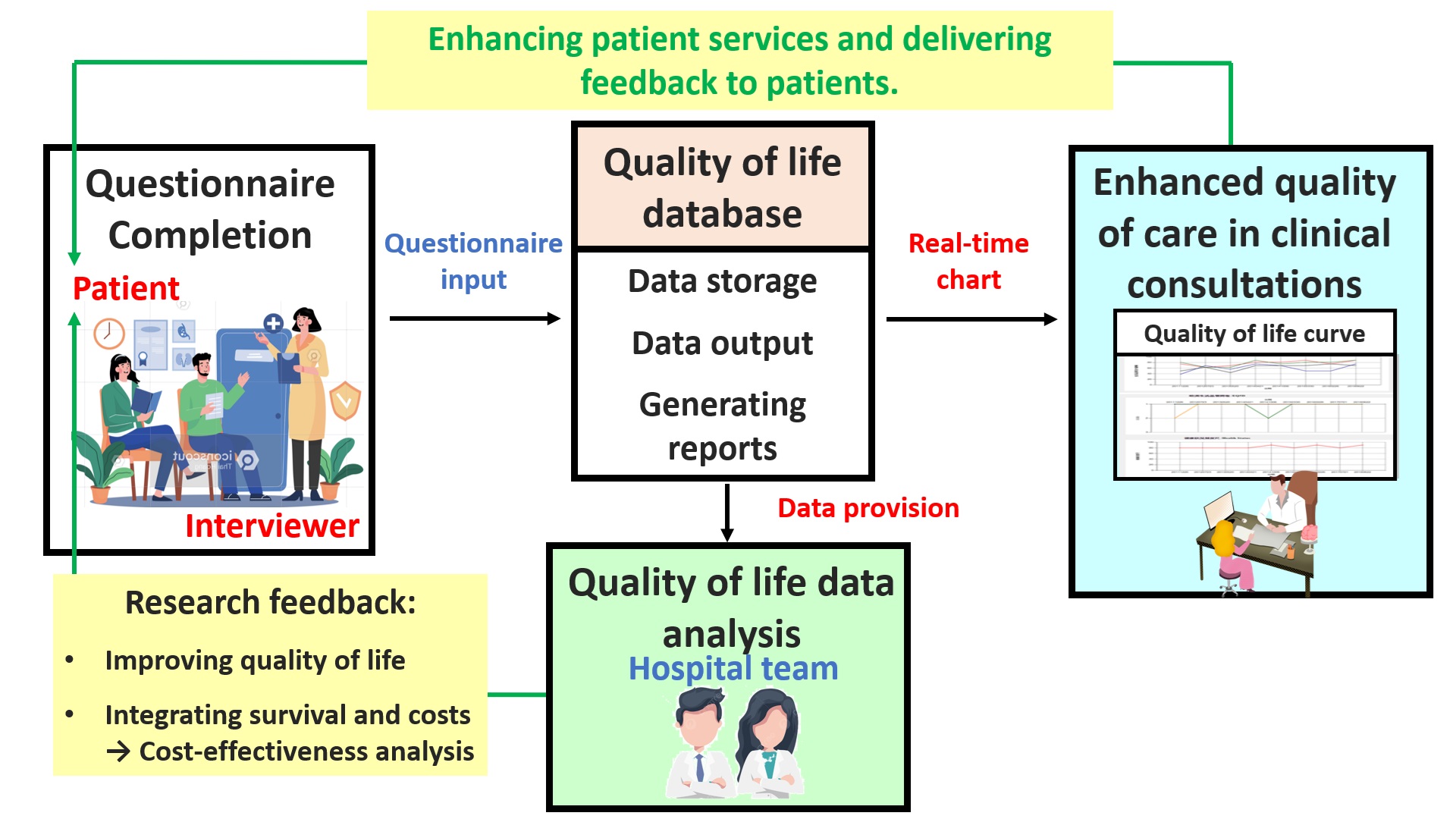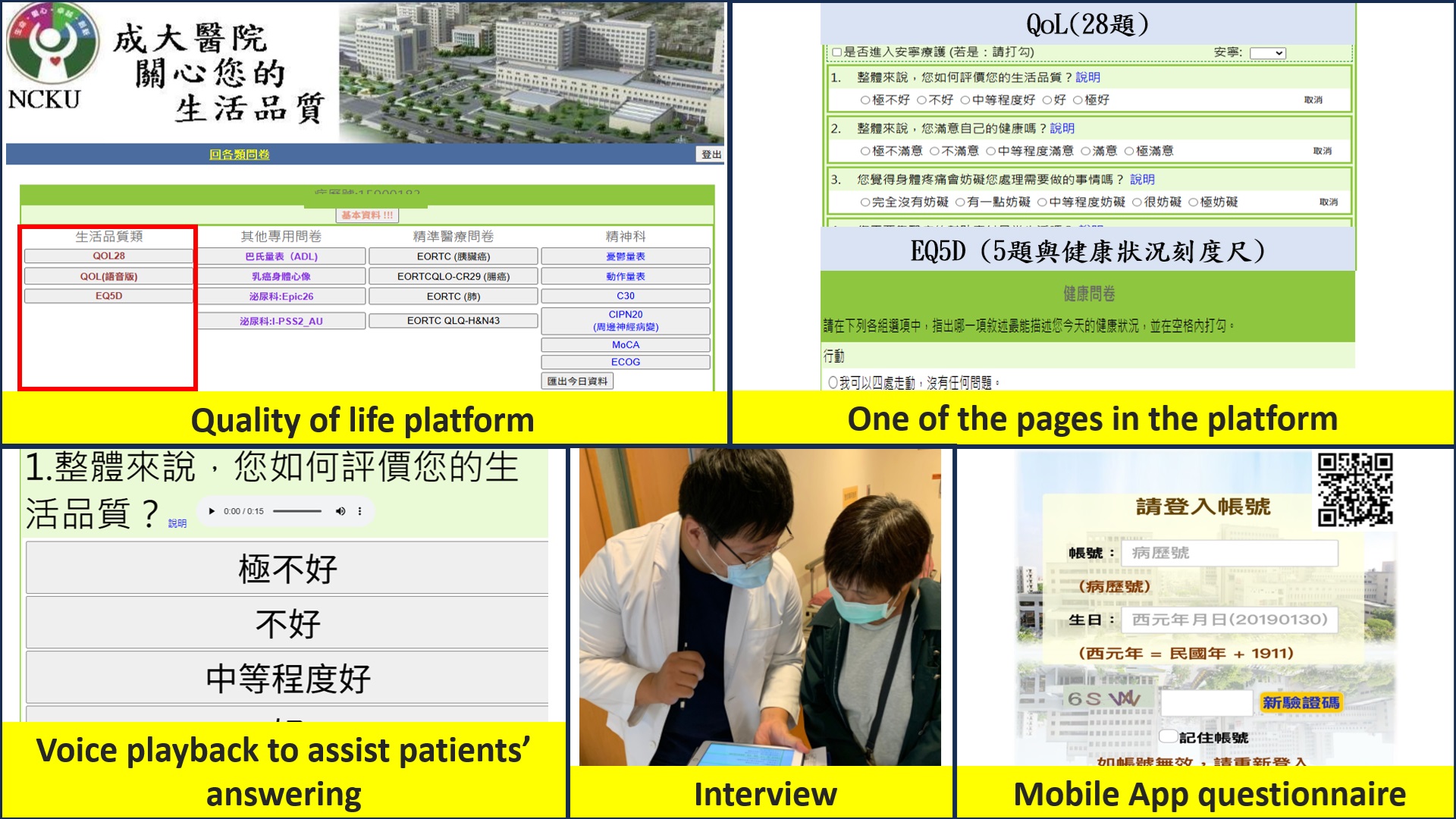Cancer patients’ quality of life (QoL) plays a crucial role in long-term survival, healthcare costs, and shared decision-making. Since 2011, National Cheng Kung University Hospital has systematically collected QoL data from cancer patients. To enhance medical services and improve patient care, we have developed the Intelligent QoL Tracking and Caring System (Figure 1).
Key Features of the System:
1. Online QoL Questionnaire with Voice Assistance
The system features an online questionnaire with a built-in voice playback function, which helps patients better understand the questions and simplifies the data collection process (Figure 2).
2. Automatic Data Upload for Secure Integration
Patient data is automatically uploaded to a cloud-based platform, reducing the need for manual data processing. The system leverages the hospital’s internal network and firewall to ensure data security and confidentiality.
3. Visualization of QoL Trends for Real-Time Feedback
Dynamic trend charts track changes in patients' QoL over time, enabling healthcare teams to provide timely feedback and make data-driven medical decisions. This ensures personalized treatment recommendations that align with patients' physical and mental well-being.
4. Utility Values Analysis for Cost-Effectiveness Assessment
QoL data can be converted into utility values used in cost-effectiveness analyses to guide national health policies and promote efficient resource allocation.
This system has collected data from approximately 23,000 cancer patients, totaling 130,000 QoL records and contributing to 103 published papers. Long-term QoL tracking supports informed decision-making and facilitates personalized medical advice for patients. The intuitive interface and cloud-based management system alleviate the data processing burden for healthcare providers. For society, integrating utility values with survival rates and healthcare expenditures enables cost-effectiveness analysis, driving new health policy initiatives for population-wide benefits.

